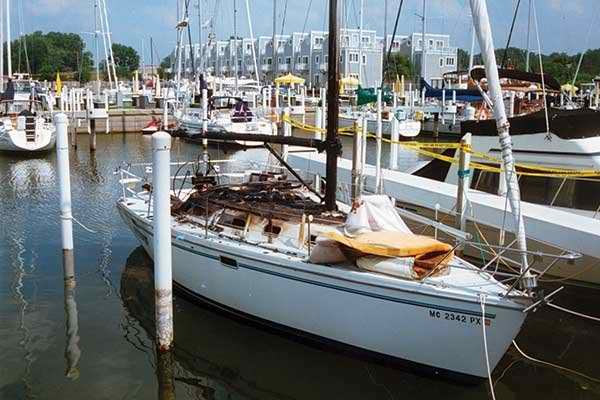stevensibs
Senior Member
- Joined
- Mar 21, 2011
- Messages
- 177
- Location
- USA
- Vessel Name
- Still Sibsie
- Vessel Make
- 42' Bristol Trawler
My trawler has #4.0 green cable connected to the chain plates of the mast stays, the cable runs down on both sides of the inside of the hull to a Dynaplate bolted on the outside of the box keel, unpainted. Calder says that from the top of the mast to the water, is the "cone of protection" whatever that means. As a pilot I've been struck by lightning many times with small damage if any, but that's because airplanes, like cars, are a Faraday's cage that keep us safe (not the tires). Scares the crap outta me too!





